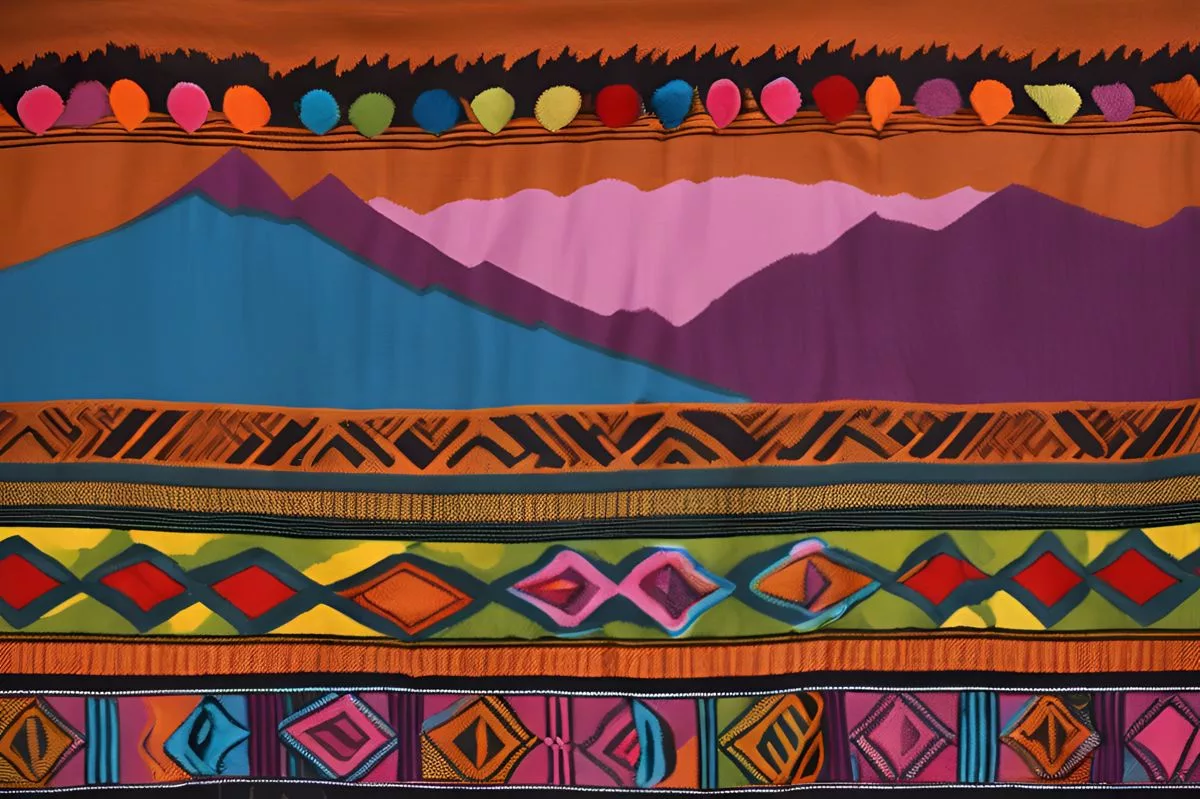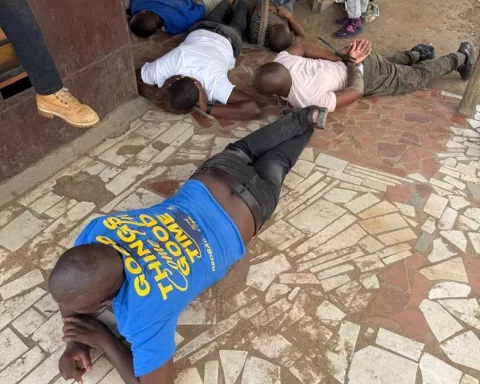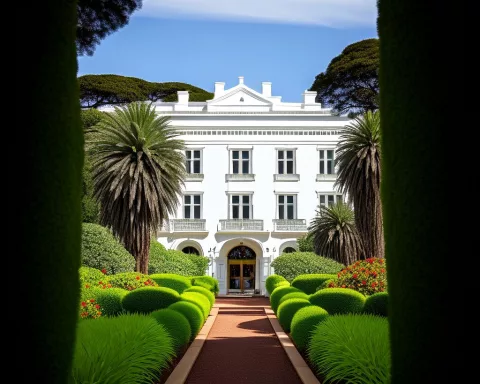Lesotho is a small yet mighty nation in Southern Africa, known for its rich history and strong spirit of unity. Founded by the wise King Moshoeshoe I in 1824, Lesotho has faced many challenges but has always stood tall, like the Maluti Mountains. With vibrant traditions, beautiful Basotho blankets, and lively dances, the culture reflects the heart of its resilient people. Today, Lesotho continues to shine, working closely with South Africa and investing in education, aiming for a brighter future filled with hope and togetherness.
What is the significance of Lesotho’s history and culture?
Lesotho’s history and culture are significant for their resilience and unity. Founded by King Moshoeshoe I in 1824, the nation has a rich heritage featuring vibrant traditions, cooperative ties with South Africa, and a commitment to education and development, shaping its identity and contributions to Africa.
The Birth of a Nation
Nestled in Southern Africa, Lesotho stands as a testament to history and resilience, its story deeply interwoven with the broader African narrative. As we mark the bicentenary of the Basotho nation‘s founding and the 58th anniversary of Lesotho’s independence, the enduring ties that have shaped this land and its people come into sharp focus.
King Moshoeshoe I, a visionary leader, spearheaded the formation of the Basotho nation in 1824. His strategic leadership and diplomatic skill laid the groundwork for a unified nation. In Lesotho, Moshoeshoe I’s influence is as robust and lasting as the towering Maluti Mountains. His emphasis on forging peaceful alliances and protecting his people from external threats epitomizes the spirit of nation-building during a time rife with challenges.
Lesotho’s path to independence in 1966 marked a watershed moment not only for the nation itself but also for the African continent, amidst the wider wave of decolonization. This milestone was emblematic of a new era of identity and self-reliance, as Lesotho navigated the complexities of a rapidly evolving world landscape.
Cultural Richness and Continental Contributions
Throughout the decades, Lesotho has continued to enrich African society significantly. The nation’s cultural heritage, vibrant traditions, and the resilient spirit of its people have added to the continent’s rich tapestry. The artistry of Basotho blankets and the rhythms of traditional dances celebrate a legacy that knows no borders.
The deep-rooted relationship between Lesotho and South Africa showcases the power of solidarity and shared history. These nations, connected by geography and intertwined destinies, have supported each other in times of need. During South Africa’s fight against apartheid, Lesotho offered refuge, standing resolutely with its neighbor despite the significant sacrifices made by many Basotho in the quest for freedom and justice.
Today, the relationship between the two countries continues to blossom. Their cooperative endeavors span various fields such as trade, education, and health, promoting mutual growth and development. The shared dreams and aspirations of Basotho and South Africans are evident in their ongoing collaboration, as both nations work towards achieving prosperity and peace.
Leadership and Regional Influence
Honoring Lesotho’s milestones also involves recognizing the visionary leadership of King Letsie III. Under his guidance, the Kingdom has consistently prioritized peace and development, earning widespread admiration and respect across Africa. His reign is a testament to wisdom and compassion, advancing Moshoeshoe I’s legacy of unity and strength.
Lesotho’s role in regional initiatives underscores its dedication to the African agenda. As a member of the Southern African Development Community (SADC), Lesotho has actively contributed to promoting economic integration and political stability across the region. This engagement highlights the nation’s commitment to the collective progress of Africa.
The realm of arts and culture sees Lesotho shine brightly. The nation’s rich cultural heritage is celebrated through various festivals and events, drawing visitors from around the world. The vibrant colors and patterns of Basotho attire, the captivating sounds of traditional music, and the warmth of its people create an enriching experience for all who visit.
Education and Future Aspirations
Lesotho’s investment in education underscores its commitment to empowering the youth and fostering innovation. The country’s educational initiatives aim to nurture future leaders who will carry forward the vision of progress and unity. By focusing on education, Lesotho is laying the foundation for a brighter future, one that embraces both tradition and modernity.
Reflecting on Lesotho’s narrative provides profound lessons in resilience and hope. The nation’s history serves as a reminder of the power of unity in adversity and the strength derived from shared aspirations. As we celebrate Lesotho’s past and present, we look forward to a future filled with promise and potential.
The Kingdom of Lesotho stands as a beacon of resilience and a testament to the enduring spirit of its people and their steadfast commitment to their land and heritage. Celebrating these significant milestones, we pay homage to a nation whose rich history enhances our collective human story, offering inspiration to generations to come.
“`markdown
FAQ about Lesotho
What is the historical significance of Lesotho?
Lesotho’s history is marked by resilience and unity, founded by King Moshoeshoe I in 1824. His leadership during turbulent times helped shape a unified nation, which laid the groundwork for Lesotho’s identity and its contributions to the African continent, culminating in its independence in 1966.
How has Lesotho contributed to African culture?
Lesotho enriches African culture through its vibrant traditions, including the artistry of Basotho blankets and traditional dances. The nation’s cultural heritage plays a significant role in the broader African narrative, showcasing the resilient spirit of its people and their artistic expressions.
What is the relationship between Lesotho and South Africa?
Lesotho shares a deep-rooted relationship with South Africa, characterized by solidarity and collaboration. Historically, Lesotho supported South Africa during its struggle against apartheid. Today, both nations work together in various fields such as trade, education, and health to foster mutual growth and development.
Who is the current leader of Lesotho, and what is his role?
King Letsie III is the current leader of Lesotho. His reign emphasizes peace, development, and unity, continuing the legacy of King Moshoeshoe I. Under his guidance, Lesotho has gained respect across Africa for prioritizing stability and cooperative regional initiatives.
What are Lesotho’s future aspirations regarding education?
Lesotho is investing significantly in education to empower its youth and foster innovation. By nurturing future leaders, the country aims to build a brighter future that honors its traditions while embracing modernity, thus ensuring continued progress and unity.
How does Lesotho promote regional influence in Southern Africa?
As a member of the Southern African Development Community (SADC), Lesotho actively contributes to economic integration and political stability in the region. This engagement demonstrates its commitment to the collective progress of Africa and highlights its role in regional initiatives aimed at fostering cooperation and development.
“`












